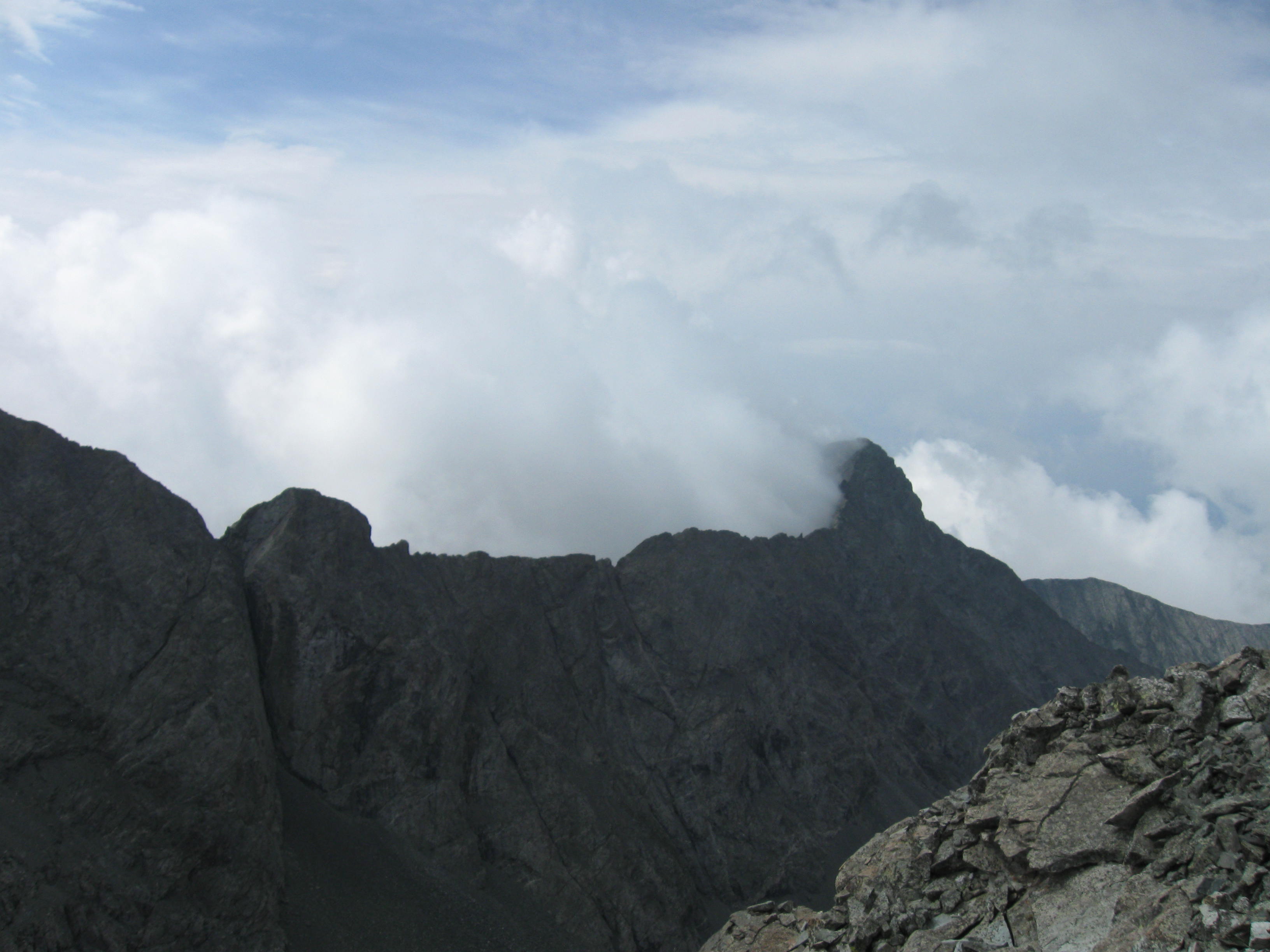 How many times in the Bible does God or one of His messengers say, “Be Not Afraid!”
How many times in the Bible does God or one of His messengers say, “Be Not Afraid!”
Urban legend suggests that it is there 365 times although that is apparently not the case. I have never counted it myself. For me it suffices that the saying is there, many times. Perhaps someday I will find the time to do a more in-depth search of it, correlating admonitions to “fear not” with admonitions to “Fear the Lord.” That will be fascinating.
However, not really the point right now. For this blog I want to share a half formed thought that has been rattling around in my head for, oh, probably more than a year now, whenever I read a scripture verse that says, “Be not afraid.” Perhaps like most people, whenever I have heard that I have always taken it to be a suggestion, an exhortation, or even an admonition. But at some time a year or so ago the thought occurred to me: “What if it is not a suggestion. What if it is a command?”
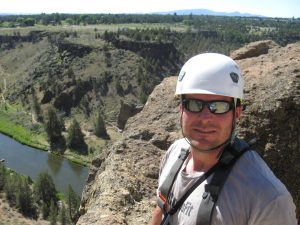 I don’t remember the context of that thought, although I think it became a Facebook status for the day. But I remember the very strong impression, which remains with me to the present, that I had, in some sense, hit on the right track.
I don’t remember the context of that thought, although I think it became a Facebook status for the day. But I remember the very strong impression, which remains with me to the present, that I had, in some sense, hit on the right track.
Now, I freely acknowledge that it is not a common position, and certainly not a theory without its issues. So far everyone I have suggested it to has responded with polite incomprehension, or (in the case of my brother) open disagreement. The immediate reaction of most people has been, “But how can you help being afraid? When something is frightening, fear just happens, you don’t decide to be afraid. The verse is more likely saying something like, ‘Buck up, don’t let the fear control you. Do the right thing in spite of being afraid.'”
This was the first thought that occurred to me as well, notwithstanding the impression of right-track-ness. As I said, this thought is half formed, and there is still unresolved tension even in my own head, so I do not expect it to be readily embraced by other people.
But let me explain some of what I mean by it. First of all, what do we mean by fear?
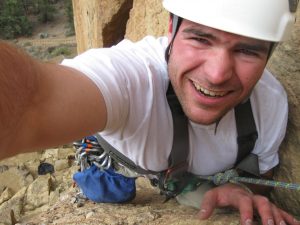
The word is not unambiguous. I will take the example of rock climbing, since I am, and always have been, afraid of heights, but since I was on a mountain team in 1st Special Forces Group, I had to go through an advanced mountaineering school and multiple training events that involved heights, high places, climbing up to them, and rappelling off of them.
When I stand on a high place, ready to rappel off, I feel sensations of fear. I sense my heart rate and respirations increasing, my blood pressure rising, my stomach unsettling, and my palms (as well as the rest of me) sweating. These are physical stress reactions. I can go into greater detail if you want, but I think you get the idea. We can call this feeling “fear” and it would not be inaccurate. However, there is a second component, which is a sense of apprehension, an unpleasant anxiety and discomfort with the current situation, similar to what I might feel the morning of a big test in school. This also could be called “fear” with justification. Finally, there is what I call a cognitive feedback loop going on in my head. I look at the drop below me, I feel the wind whistling past me, I smell my own sweat, and I experience my own uneasiness. I think about that, and I think “This sucks” or some variation of that. Then I think about the fact that it sucks, and I wish myself anywhere but there. Then I think about all the places I might be, in a small act of escapism (my favorite trick was to promise myself if I made it off the rock alive I would never climb again. So far I have always failed to keep that promise).
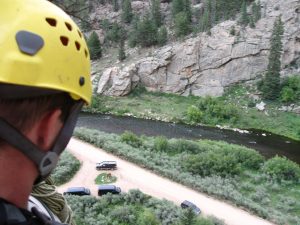
My flight into escapism would be cut short by reality, and the necessity of moving a step closer to the edge and backing into rappel position. I would review my procedures, mentally review my anchor, remind myself of the relative puniness of my weight compared to the rating of all of my equipment, but none of these facts ever seem to bear the visceral weight that the sight of the drop, the feel of the wind, the smell of sweat and that dang, jittery, uneasy feeling.
When I use the word “fear” in its full sense, I mean the combination of all three of these things: the physical stress response, the emotional weight of that response (including the shame attendant upon the knowledge of one’s own fear), and the cognitive feedback loop that recognizes, names, examines and perpetuates all three. The cognitive part is the tongue of the self-licking ice cream cone.
That cognitive component, which I sometimes call “worry,” is the part of fear that I think we are commanded not to do. It is the active part of fear, the part that doesn’t just happen to me, but that I actively participate in. I also suspect that it is a part of the fear that we humans tend to cling to, despite the fact that it sucks. We cling to it for a lot of reasons. It is a million miles away from real problem solving, but it gives us a sense of control. It doesn’t improve the situation, but if does give us the momentary relief of escapism. It makes us feel important because, if I am afraid then I must be Doing A Big Thing! If I dwell on the fact that I am afraid, and then do it anyway, then I can feel brave for it. In the last resort is an excuse to stop. It is the beginning of phobia, and the consequent weakness of saying, “I can’t do that because I have a fear of x, y and z.”
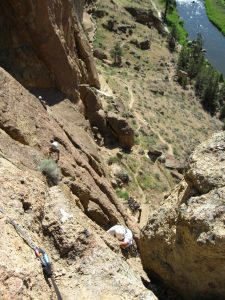 Fear sucks. The stress reaction is unpleasant enough, unless you happen to be an adrenalin junky. The discomfort with your situation is even worse. I have known many instances when I actually begged God to break my arm or leg or even just let me die, so I wouldn’t have to go through with this, but I also wouldn’t have to quit. The worst is when I dwell on the fear, perpetuate it and reinforce it.
Fear sucks. The stress reaction is unpleasant enough, unless you happen to be an adrenalin junky. The discomfort with your situation is even worse. I have known many instances when I actually begged God to break my arm or leg or even just let me die, so I wouldn’t have to go through with this, but I also wouldn’t have to quit. The worst is when I dwell on the fear, perpetuate it and reinforce it.
When I first went through airborne school I complained to a friend of mine that I hate jumping out of airplanes, and I was glad that I wouldn’t have to do it as often when I got to my training unit. She asked whether I shouldn’t try to get on as many jumps as possible and try to overcome that fear. I laughed and said, no, it’s enough that I can make myself do it when I have to. Making myself comfortable with it is too much work.
She was right, and she was much wiser than I was. In retrospect I have many times found myself, paradoxically, clinging to the fear, refusing to put in the work that would have made
me unafraid. I would rather be afraid, than force myself to endure the sheer mental stress and physical exhaustion that I would have to go through to get past the fear.
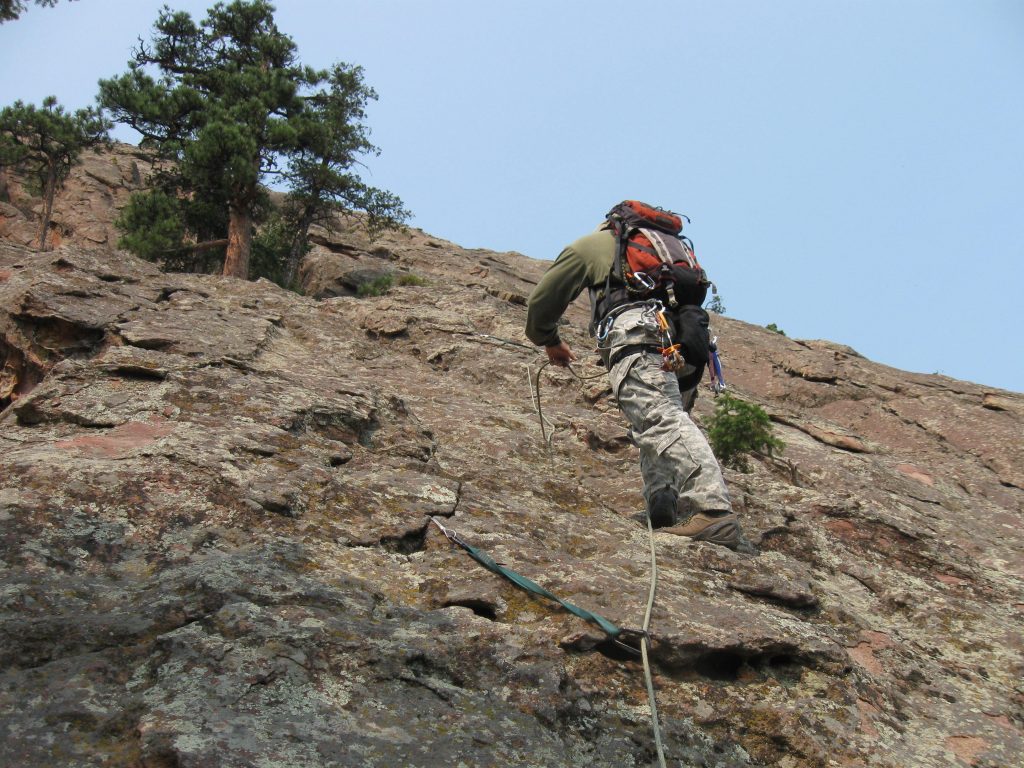 Perhaps that is what I mean when I say that, “Be not afraid,” is a command, rather than merely a suggestion. Do the thing you are afraid of until you are no longer afraid of it. Do not be afraid of being unafraid. Part of it anyway. I can tell you that I have never regretted doing something that I was afraid of doing. I have also never turned away from something I was afraid of, and not regretted later.
Perhaps that is what I mean when I say that, “Be not afraid,” is a command, rather than merely a suggestion. Do the thing you are afraid of until you are no longer afraid of it. Do not be afraid of being unafraid. Part of it anyway. I can tell you that I have never regretted doing something that I was afraid of doing. I have also never turned away from something I was afraid of, and not regretted later.
There is yet another layer of this, suggested by St. John’s assurance that “Perfect love casts out all fear” but this post is already too long, and it will have to wait.


